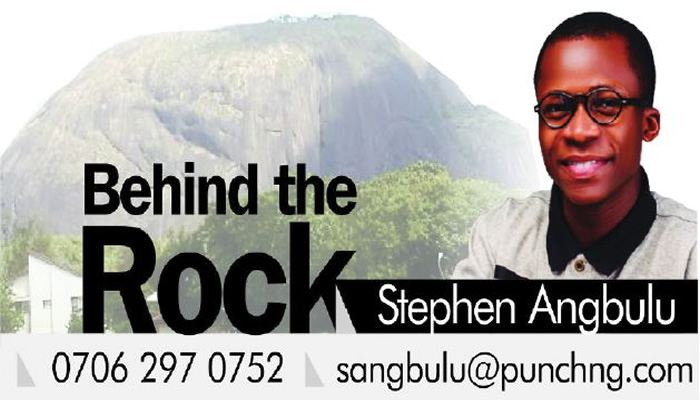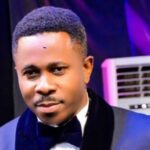
In January 2018, Americans beamed their attention to the schedule of then-President Donald Trump to see how he was running the country.
Like waves, attention to such issues wanes, peaking in a President’s early months or years and dipping when national issues eclipse domestic matters. Who cares what time the President wakes up or goes to bed in the middle of an economic crisis?
I recall reading a BBC analysis comparing the schedules of former US Presidents, Trump, Barack Obama, and George W. Bush. Although Trump reportedly enjoyed “Executive Time” from 8 am, his public engagements begin three hours later when he gets intelligence briefings from his National Security Adviser during a ‘Policy Time’ slot.” This was followed by more “Executive Time” from 1:30 pm.
In contrast, Bush, known for starting and sleeping early, often arrived at the Oval Office by 6:45 am, according to reports.
Meanwhile, Obama usually began his day with a morning workout and ended early enough to catch dinner with his family. However, a BBC report revealed that he was known to exhibit “night owl” habits, staying up sometimes until 01:00 or 02:00 am working after Michelle and the girls retired for the night.
Others, like Lyndon B. Johnson and Bill Clinton, were known for long calls in the middle of the night.
While a country’s president’s daily schedule changes over their term, the common theme here is the meetings. Tons of them! If meetings were flight hours, some presidents might exceed Ed Long’s Guinness world record of 65,000 hours by the end of their tenure.
It is not clear how President Bola Tinubu spends his pre-11:00 am hours. Does he work out? Does he bench press, read documents and books? Or watch cartoons like Buhari?
There’s no doubt that he works when he arrives at work, even if that means working late evenings. One such evening came last Tuesday when Tinubu received the US Secretary of State, Antony Blinken, at the State House.
Such visits are not new, but they come with a lot of protocols.
The State House Protocol Office often works with its media and security counterparts to determine who is present at such meetings, who accompanies the visiting official inside, and what part of the visiting delegation must remain in the briefing room while the session lasts.
Blinken’s motorcade was scheduled to arrive at the forecourt of the villa at 6:30 pm but was delayed for 30 minutes by traffic. When he eventually arrived minutes to 7 pm, he was received by the Foreign Minister, Yusuf Tuggar, who ushered him to the President’s Diplomatic Room for bilateral talks alongside some ministers.
A handful of reporters, photojournalists, and videographers had been stationed to establish the arrival while the personal photographers of the two leaders waited inside to establish handshakes and dialogue. Their media advisers sat in for the talks, too.
President Tinubu’s Special Adviser on Media and Publicity, Ajuri Ngelale, had earlier announced that Blinken and Tuggar would hold a joint briefing and entertain four questions afterward. On the Nigerian side, Adesuwa Omoruan of Arise News and I asked the Secretary of State a few questions about the US government’s specific commitments to Nigeria under the nascent administration.
The bilateral meeting ended at about 8 pm and the joint briefing began 30 minutes later, lasting over 25 minutes.
Blinken said the US government was willing to support the administration in its social investment programmes to ease the hardship occasioned by the removal of the petrol subsidy.
While expressing support for the economic reforms, he noted the short-term impact on vulnerable communities, saying his talks with the President explored ways to cushion the hardships.
“We welcome the President’s bold reforms to unify the currency and end fuel subsidy. We also recognise that in the short term, these reforms created pain for vulnerable communities.
“I spoke about some ways that the United States can support Nigerians while the government carries out these essential reforms and works to protect those who may, again in the short term, be negatively affected,” he added.
Blinken said the Biden administration was eager to continue its investing streak in Nigeria’s health sector, having devoted over $8.5bn in the last five years towards HIV and tuberculosis prevention, care, and treatment and in strengthening the system.
The President had sought US support for Nigeria’s membership in the G20 and a seat on the United Nations Security Council. Foreign Affairs Minister, Tuggar, said Nigeria, Africa’s largest economy, deserved to represent the continent on the UN Security Council as 60 per cent of resolutions passed there were Africa-related.
A key takeaway was Blinken’s assertion that American businesses were itching to invest in Nigeria’s economy, particularly in the tech sector.
However, the difficulty in repatriating capital and the ongoing battle against corruption remain part of the encumbrances both governments must seek to overcome. All eyes are on the US to scratch that itch, even as Nigerians wait to see the encumbrances hoisted out of the way as soon as possible.
Tinubu’s ‘prophetic’ trip to Paris
When the writer of the biblical book of Ecclesiastes said, “There is nothing new under the sun,” President Tinubu’s private trip to Paris comes to mind, especially as it coincides with the period after the World Economic Forum in Davos, Switzerland.
I’ll explain.
For context, the author wrote, “What has been will be again, what has been done will be done again; there is nothing new under the sun.” (Ecclesiastes 1:9, NIV)
In January 2017, seven years ago, Tinubu’s predecessor, Muhammadu Buhari, travelled to his own Paris — London — for what the Presidency called “a short leave.”
The then-spokesperson to the President, Femi Adesina, said Buhari would undergo a “routine medical check-up” during the vacation. Adesina added that his principal would resume work on February 6.
Fast forward to January 24, 2023, President Tinubu’s spokesperson, Ngelale, wrote in a statement, “President Bola Tinubu departs Abuja for Paris, France…for a private visit. He will return to the country in the first week of February 2024.”
The wording may differ, but you catch my drift!
Unlike Buhari, Tinubu did not delegate acting powers to his vice. However, when Buhari jetted out, former Vice President, Prof Yemi Osinbajo, was in Davos, Switzerland, heading Nigeria’s delegation to the WEF. The professor shortened his trip and arrived in the country the day after Buhari left.
But for Tinubu, Vice President Kassim Shettima had returned from Davos about five days earlier. That is not to say the President would entirely toe the line of his predecessor.
It is only expected to document repeated moments in history when they happen.





